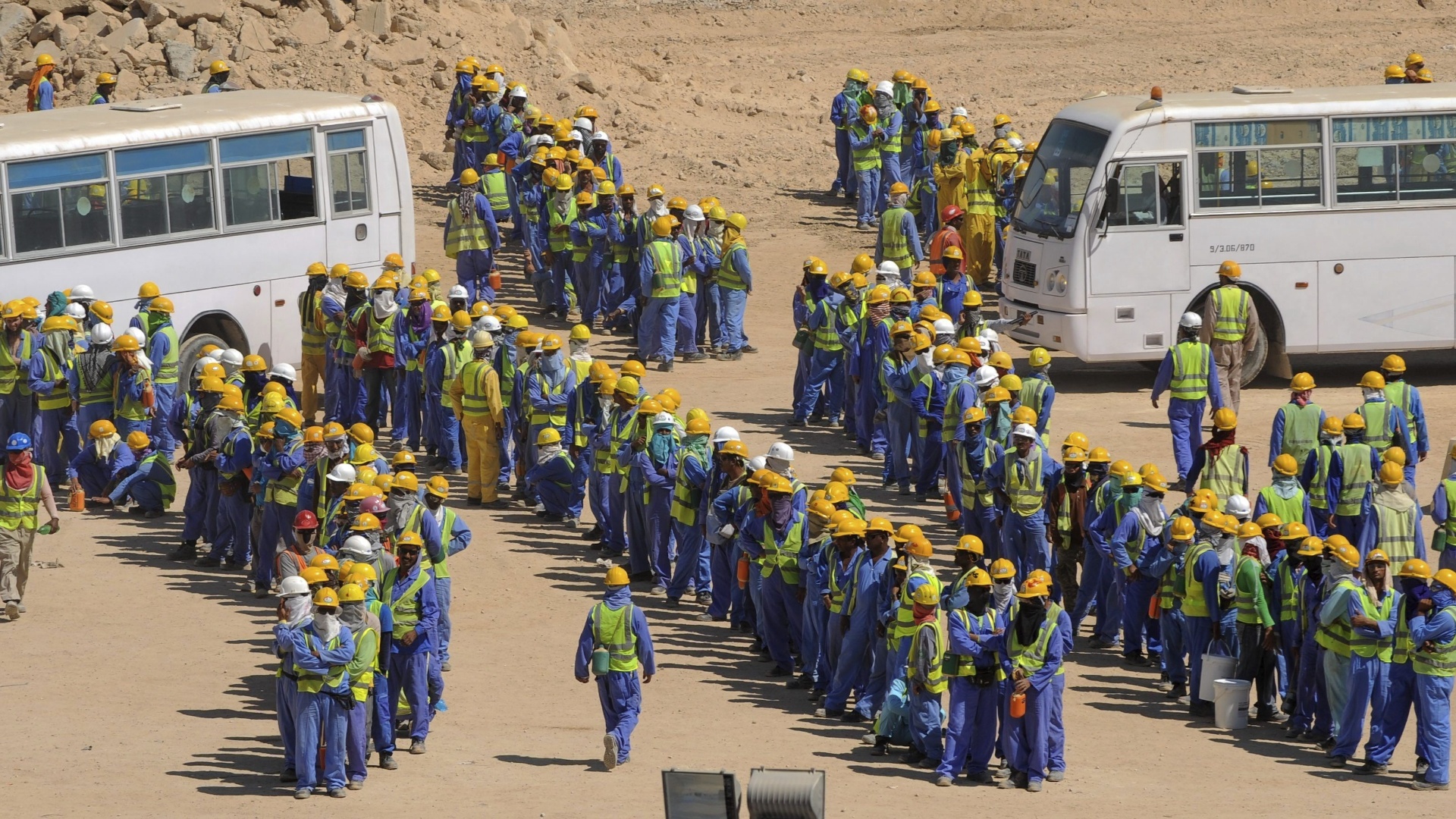Thousands of migrant workers, most of them hailing from South Asian countries such as Bangladesh, Nepal and India, have won significant concessions and assurances from the Qatari government, following two days of strikes and protests. Held in the first week of August, the workers’ protests were against the delay and non-payment of salaries, inhumane working conditions along with threats of wage reduction.
Workers were seen blocking the Dukhan highway in images posted online. A local trade union activist said that the protests had taken place on August 4 and 5, mainly in and across Labor city, where a majority of the migrant workers live, as many of the big construction companies are situated in the area.
On August 4, workers belonging to the Iskan Construction and Contracting Company, went on protest due to delays of over two months in the payment of their salaries. The following day, between 800 to 1,000 Iskan employees refused to report to work. One of the employees claimed that in response to the protests, the company’s management threatened to deport workers who refused to sign the new contracts with reduced wages.
The protests resulted in the workers entering into negotiations with Qatari government officials, over issues and problems faced by them. Following the successful negotiations, those affected, received two months of unpaid salaries from their companies. Qatari authorities also arrested company officials who were guilty of not paying the workers their dues.
A Qatari government spokesperson said, “An investigation was immediately launched and the authorized signatories of the two companies in question were arrested. After consultation with all stakeholders, the outstanding salaries of all workers were paid in full through the Wage Protection System (WPS).”
Many workers had registered their grievance regarding applying for and procuring ‘No Objection Certificates’ (NOC), a necessary requirement to quit a job, without the employer’s permission. Government officials issued such NOCs to the workers, allowing them to change their employer.
The protests reflected the precarious and desperate situation of the workers. Most workers are employed under the ‘kafala’ system, which forbids employees from changing jobs without prior permission of their current employers, who have sponsored their work visa. The employers also have power over the workers’ movements and can decide whether he or she can leave the country. Trade unions remain illegal in the country, with a general ban on strikes.
A trade union activist, who spoke to the media on the condition of anonymity, clarified that the protests were not related to the projects for the FIFA World Cup, to be hosted by Qatar in 2022, the anticipation of which is generally considered to have affected the government’s response to the situation.
Hiba Zayadin, of Human Rights Watch (HRW) said that, “the government’s reaction to the strikes, wherein it allowed migrant workers to protest and promised to ‘find solutions’ is indicative of Qatar’s sensitive position three years ahead of the world cup.” While Qatari security services personnel were present at the protests in riot gear, they did not try to break up or suppress them, but just observed the events from a distance.
Ever since Qatar was awarded the right to host the prestigious football world cup by FIFA in 2010, the nation’s treatment of its migrant workers has received global scrutiny. Qatar has highest proportion of migrant workers’ population in the world, with 2.3 million of the 2.6 million inhabitants expatriates. Most of these workers come from poorer south and southeast nations, and work under extremely poor conditions and meager wages.
What brought attention to the condition of the migrant workers in the tiny Gulf state, would be the high incidence of death among workers under the age of 50, often because of exhaustion and adverse impact of years of strenuous work. According to a 2014 data revealed by various sources, as reported by Guardian, over 700 Indian workers and over 400 Nepali workers were estimated to have died in a span of two years since 2012, across the country.
Sharon Burrows of the International Trade Union Confederation, in an interview for an ESPN documentary, called Qatar a “21st century slave state”. Burrows added that for an average migrant worker “it’s a life of squalor. You are trapped in Qatar.” A 2013 report by ITUC had estimated that if situations did not improve then nearly 4,000 workers can be expected to be dead by the time the world cup begins in 2022.
A recent report by FIFA’s Supreme Committee revealed that despite repeated claims of improvement by the government, between February 2018 and January 2019, 10 workers employed in various world cup related projects died. They were aged between 26 and 49, of which six were under the age of 36.





